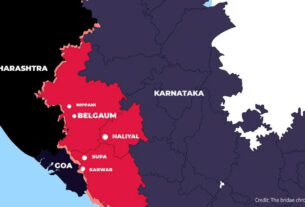Filmmakers at the Bengaluru International Film Festival emphasized the struggles they face in the process of screening movies.
By Hansy Sanctis and Saloni Arora
The 11th edition of the Bangalore International Film Festival (BIFF) was held from the 21st February and came to an end today. It took place at the Orion Mall, and the screenings were divided among 10 screens; more than 200 films were screened for seven days.
The turnout was not as much as expected, but the Creative Director of the festival, N Vidyashankar emphasized on how the growth of reception of international films in Bangalore was on an ascending curve. The opening the Iranian film was ‘Bomb, a love story’, which was directed by the Iranian filmmaker, Payman Maadi.
Devashish Makhija, the director of the Indian film ‘Bhonsle’, stressed how he faced the problem of censorship during the screening of his movie because the board found extreme subject matter in its content. He was also disappointed with the organizing committee of this festival as the Indian movies weren’t given priority and the audience also had the prejudice of watching the international films preferentially.
In this edition of the film festival, Bangalore hosted a total of 200 films, which were screened from about 60 countries. Movies based on war, caste system, politics, and other genres were shown. There were competitions that were held on a national level and on an Asian level as well. The documentary section had the theme, ‘Nature’s Fury’ and was based and inspired by the floods which took place in Kerala and Karnataka last August.
Makhija also commented on the benefits of online streaming as filmmakers receive funds and better critical acclaim from platforms such as Netflix and YouTube have a wider scope. He believes it should be an individual’s choice to select the platform he/she is comfortable watching a film.
An international filmmaker from Hong Kong, Derek Chiu, introduced his film, ‘No.1 Chung Ying Street’ and expressed his discontent towards the response he received from the Indian audience in Bangalore and in Delhi as well.
He mentioned how the audience couldn’t relate to his movie and walked out in between the screening because of a lack of comprehension on their part.
Amartya Bhattacharya, Indian director of the film ‘Runanubandhu’, mentioned the difficulty faced in the art of filmmaking, as the Indian audiences relate well to films that are primarily based on narratives. Speaking on the difficulty of cinematic comprehension, Bhattacharya spoke on how the masses need to be more open-minded when it comes to watching films.
Gaurashish Nair, an engineering student has been a regular at the festival on all of the seven days. He had watched about 20 films and said – “It was a great experience and there is definitely a wonderful opportunity to witness global cinema at its best. The Iranian film ‘Hattrick”, which was made by Ramtin Lavafi was worthy of a re-watch as well.”




